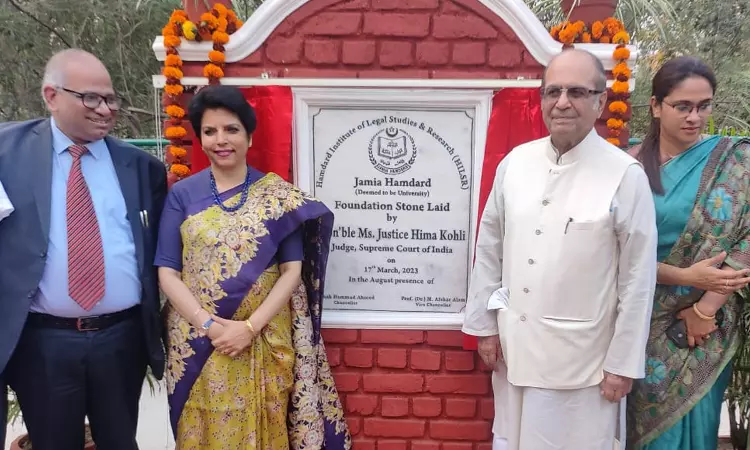Mediation Of Pending Court Cases Can Serve As 'Blue Ocean' For Opportunity For Start-Ups: Justice Hima Kohli
Navya Benny
18 March 2023 10:13 AM IST

Next Story
18 March 2023 10:13 AM IST
Speaking at the occasion of the foundation stone-laying ceremony of the New Law School Building of ‘Hamadard Institute of Legal Studies and Research, School of Law’ School of Law and the inauguration of CONCORDIA: National ADR Fest, 2023, Supreme Court Judge Justice Hima Kohli said on Friday, that mediation in respect of pending court cases could serve as a ‘Blue Ocean’ opportunity...
